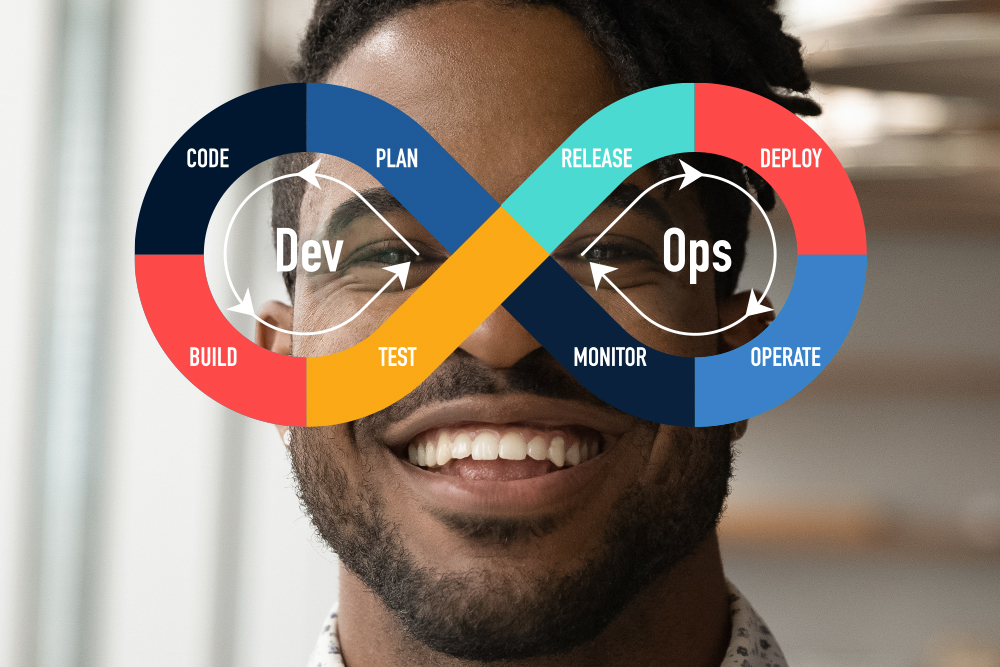Day in the Life of a DevOps Engineer

DevOps Engineers are a unique breed of technologists. They perform specialized tasks that increase the productivity of the software development teams with which they work. A DevOps Engineer often supports more than one development team and more than one system.
The term ‘DevOps’ is an amalgamation of ‘Development’ and ‘Operations’. In the past, these two functions were distinct and separate, performed by specialists in one discipline or the other. In today’s Agile development environment, however, software teams have gained efficiencies by combining the two disciplines into a single job role. The DevOps Engineer has a foot in both camps, bridging the gap between the two. The combined DevOps role results in faster development, quicker deployment to production, and expedited responses to user problems.
A successful DevOps Engineer must master a variety of skills. People skills are at the top of the list. A DevOps Engineer spends much time communicating and collaborating with programmers, testers, systems architects, data center managers, and project managers. A DevOps specialist wears a wide toolbelt that contains tools to assist with source code library control, continuous integration, configuration management, containers, and cloud platforms.
Even with these definitions, DevOps Engineering may be hard to comprehend unless you actually see one at work. This article follows a typical day for a DevOps Engineer to give you insight into this critical technology role.
Daily Standup
The day typically begins with one or more team meetings, called Daily Standups. These meetings carry this name because they happen every day and they are short enough that the participants don’t need to sit down. Team members go around the room describing what they accomplished the previous day, what they plan to work on today, and what problems they may be facing. This is all valuable information for the DevOps Engineer to get an idea of the support tasks they may need to perform. The DevOps provides an assessment of the build pipeline at the start of the day, which helps the developers and testers know if they should anticipate hold-ups in the application build process. The DevOps Engineer may attend several of these meetings if they support multiple teams, which is quite common.
Fix Build Failure
Once the Daily Standups are done, the DevOps Engineer checks the status of application builds that might have failed since the end of the day yesterday. If a build process has failed, they must analyze the source of the problem and fix the error in the automation script.
Customize the Build Process
Every build pipeline is a custom process. As developers use the pipeline to build their code, they continually request new features and functions to respond to their unique programs and to streamline the process. The DevOps Engineer modifies the build automation scripts to work the way the developers need to get their jobs done.
Document
The build pipeline must be thoroughly documented. If one DevOps Engineer is out for a day or gets assigned to a new team, their replacement should be able to step in and immediately understand the automation scripts and fix problems. A few minutes keeping documentation current can save a new engineer many hours of searching and solving problems by trial and error.
Monitor User Feedback
One of the key functions of the Operations discipline is to know what the end users are experiencing with the production application and catch problems before they become catastrophic. During the day, the DevOps Engineer keeps an eye on reports and trouble calls from end users. When a systemic problem seems to be gaining momentum, the DevOps Engineer can alert the development team to start debugging the problem.
Improve Build Performance
Developers can spend much of their day waiting for the build process to incorporate a change in the program code so it can be tested. Build performance is crucial, therefore, to developer productivity. The DevOps Engineer searches constantly for opportunities to streamline the build pipeline and reduce the time it takes to build the application.
Automate Environment Setup
New developers and testers on a team can often spend several days configuring their workstations and project libraries before they begin productive work. When a DevOps Engineer automates the development environment setup process, new team members can get to work faster and reduce the overhead costs of the project.
Infrastructure Meeting
The DevOps Engineer must ensure that the operating systems and infrastructure supporting the application are up to date and performing well. Meeting with the server and network teams keeps the DevOps Engineer in the loop about upcoming changes. Updates to hardware or OS versions often impact the code and the build process. The DevOps Engineer must stay ahead of these changes and keep the development team apprised.
Integrate New Technologies
Information technologies change rapidly. It is challenging to keep up with the latest versions of third-party products and services that are used in an end-user application. The DevOps Engineer is ever on the lookout for updates to existing products or the introduction of new services that may impact their applications. Keeping the integrations up to date is critical to a smooth running operation.
Explore New Tools
Just as new products evolve constantly to impact developers, new DevOps tools hit the market in rapid fire. The DevOps Engineer must be alert to new tools that could simplify or streamline the build pipeline or some other aspect of the project.
Final Thoughts
A DevOps Engineer will not necessarily engage in every one of these activities every day. And their day does not always end when the whistle blows at five o’clock. Many systems run 24x7 with users online around the world and around the clock. DevOps Engineers are often on the front line when trouble calls come into the Help Desk in the middle of the night. They are uniquely skilled to troubleshoot many problems on the application path from the end user’s screen through the network to the servers and the database. The job of a DevOps Engineer is challenging, exciting, and constantly evolving.
If DevOps Engineering sounds like the kind of career that would get you out of bed every morning, contact a RemoteMode career consultant today to learn how quickly you can train for this fascinating job and put your employment future on a whole new track.
Take the first step to your new remote career!






